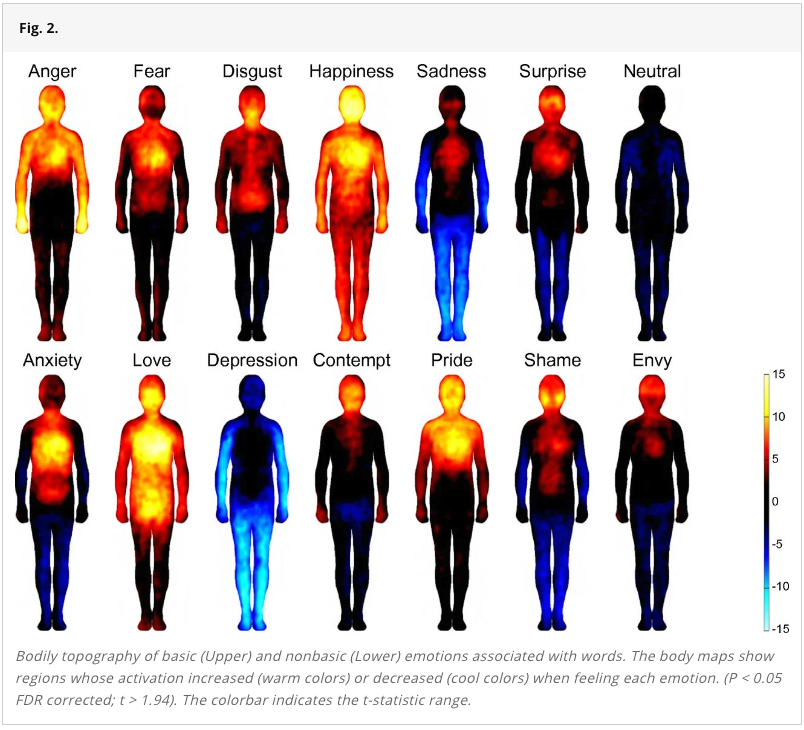
Sponsored By: GoingVC
Want to start a Successful Career as a Venture Capitalist?
This essay is brought to you by GoingVC. Apply to our 16-week program to improve your skills, network, and experience to get a job in Venture Capital.
In my work as an executive coach, it’s common to hear founders share something along the lines of, “My emotions get in the way of my ability to make good decisions.” There’s a pervasive myth—particularly in the tech industry—that listening to our rational, logic-oriented left brain is superior to acting in response to fluctuating emotions.
Life might be simpler if this were the case. Emotions are messy, and in some circumstances they cloud our judgment. Even the neuroscientists studying them have struggled to understand how they work.
But it turns out that without our “irrational” emotions, we would be unable to make even basic day-to-day choices. Research in recent decades has shown that emotions are a crucial component of our decision-making process. And running a startup requires making constant choices.
In this article, I unpack the recent neuroscience on the topic and share an emotion processing tool I use with clients.
We can’t make decisions without emotions
The caricature of a stoic Spock-like creature making perfectly rational decisions is—as we now know from the science—absurd. Famed neuroscientist Antonio Damasio was one of the first to figure this out in the late twentieth century. He studied a patient with a tumor that compressed the frontal lobe tissue in his brain and had to be removed.
In the months following, the patient, Elliot—who previously had a good corporate job—saw his life fall apart. Even though his IQ was high and his language and mathematical abilities seemed intact, his emotional capacity had been severely limited to the extent that he was unable to make basic decisions, like prioritization of tasks and scheduling.
This and other similar cases became the foundation for Damasio’s so-called “somatic marker” hypothesis. It posits that emotion registers in the body through phenomena like a racing heart, frowning forehead, butterflies in the stomach, etc. These sensations help us consciously and subconsciously filter data sets of information.
We then make choices based on what we think will allow us to feel good in the future. Without these “somatic markers,” even the most basic decisions are overwhelming. (This theory gives a whole new meaning to common aphorisms like “trust your gut” or “follow your heart.”)
Sponsored by: GoingVC
Free Venture Capital Investment Thesis and Guides
Unlock the power of creating investment theses to shine among peers and secure your next VC gig. Get a Free Investment Thesis Creation Guide and 3 Top thesis on Generative AI, FemTech, and Private Market Liquidity.
Apply to our 16-week Education program for Free to receive the content, If you end up choosing to join the program you have a full 30 day money back guarantee.
Apply by July 17th to receive the guide and the theses.
GoingVC equips you with the skills, network, and experience to get a job in VC or launch your own fund. Elevate your VC journey with us.
Emotion = sensation + context
The simplest questions can be the most vexing. Even to this day, there is no scientific consensus on the precise definition of an emotion, which speaks to how little we know in this emerging field of neuroscience.
The French essayist Marcel Proust once described the emotion of love as producing “geological upheavals of thought.” While this is an evocative metaphor, recent neuroscience suggests a different picture, exploring the idea that emotions are a fundamentally biological phenomena and emotional experiences are co-created by our minds.
As neuroscientist Lisa Feldman Barrett told The Cut, “Emotions are not your reactions to your world. They are how you make sense of what’s going on inside your body in relation to the world.” First, stimuli trigger pleasant or unpleasant physical sensations. Then the insula (a part of the brain’s cerebral cortex) checks the sensation against the perceived situation and makes sense of it.
In other words, the experience you label as an emotion comprises sensation plus context. If your heart is racing when you pitch your business to a big investor, you might experience that as fear. But in a different context—like launching a new product to the public—you interpret the same bodily signals as excitement.
Barrett believes that our brains follow the scientific method, perpetually constructing hypotheses through prediction and then testing them against the data of sensory input. For example, maybe you’re excited to give your first conference talk, and then you fumble your speech. In prepping for the next public speaking engagement, you may feel fear instead of excitement.
Where do emotions arise in the body?
So if emotions are a combination of somatic sensation and situational context, from where exactly do these sensations arise in the body? In a 2013 study from a Finnish research lab, the researchers showed participants written stories, movies, and facial expressions designed to evoke certain feelings. Then they asked participants to draw “body maps” of where they felt those various emotions in their bodies. The warm colors represent where sensation increases when a person feels an emotion, and cool where sensation decreases.
Researchers worked with two different groups—West European and Taiwanese—and found that “consistent patterns of bodily sensations are associated with each of the six basic emotions.” (They’re shown in the top row in the image below, although it’s worth noting that these six basic emotions are still being debated.)
These maps help illustrate that our experience of emotions is a dynamic interplay between somatic sensations and their context—and there may be some statistical overlap in how those feelings present in the body across cultures.
Looking at these “body maps,” do they correlate with your lived experience?
The competitive advantage of ‘feeling the feels’
Research has shown that emotions are transmitted from the brain to the body and vice versa. In my work as a somatic and breathwork practitioner, I've seen this flow get impeded by any number of psychological or physiological defenses, such that the experience remains in the realm of the mind. This is critical, because if emotion is confined to a person’s brain alone, it will be compared to our historical reactions and not be tested by the reality of our physiological response.
In other words, our feelings get trapped. In coaching we refer to this experience as “emotional looping,” where a client may be stuck in the story of what occurred. They resist dropping down below the neck and into the often uncomfortable sensations—perhaps a tightness in the chest or weight in the stomach—that allow the feelings to move and escape the cycle of resistance.
My founder clients who can escape story loops have an easier time making important decisions. They feel the emotional sensations in their bodies.
If we’re resisting (consciously or unconsciously) a certain emotional experience, then we’ll make intentional choices to avoid feeling that way. If, as a startup founder, you are uncomfortable with the sensations of anger or frustration, you’ll likely avoid potentially confrontational situations, like giving necessary critical feedback or setting clear boundaries with others.
If you avoid sitting with the inevitable sensations of sadness, grief, anger, or guilt, then you may cling to employees that should have been let go weeks prior, or you may resist ending a project you care about that isn’t serving the company.
One of my mentors, Joe Hudson, goes a step further with what he calls the “Golden Algorithm.” It’s the idea that any problem you’re experiencing has a corresponding emotion you’re trying to avoid. By evading that feeling, you’re actually more likely to amplify it.
Let’s apply the Golden Algorithm to the previous example of the founder who tends to avoid confrontation. Because they’re afraid to deliver critical feedback, they’ll likely become resentful of their colleagues. After all, their frustration has to go somewhere, so it gets trapped internally and festers. Another example: If a founder is avoiding the grief of letting go of an employee, their business may suffer long-term consequences. They may have to eventually let go of many more people as a result of delaying the original layoff.
How to begin exploring your emotions
To gain more awareness of your emotions and how they’re shaping your decisions, I recommend cultivating your perception of your interoceptive senses—the conscious and unconscious signals to your brain of what’s happening in your body. That will make it easier for you to identify the physical sensations associated with your emotional experience.
Below is a simple journaling practice to get you started. (For more experiments to try, check out my previous Every post.)
Step 1: Choose one emotion to explore, ideally one that you have historically resisted feeling or have judged in others.
Step 2: Reflect on any thought loops or beliefs that arise alongside this emotion. Does it crosswire with another feeling? For example, sometimes shame crosswires with anger, or fear crosswires with joy. Write about your relationship with this emotion and what useful information it may have to give you that you’ve been ignoring.
Step 3: Write down some physical sensations that arise when you feel this emotion in your body. (Refer to the body maps above if necessary.) Describe as much sensory detail as you can. For example, is the sensation hot or cold? Sharp or dull? Expansive or contracting? Notice how the sensations shift as you bring your attention to them.
Stay tuned for part II, where we’ll be exploring the concept of “emotional debt” as well as specific practices for working skillfully with challenging emotions.
Jonny Miller hosts the Curious Humans podcast and Nervous System Mastery, a cohort-based boot camp that shares evidence-based protocols for cultivating calm and resilience. Learn more.
The Only Subscription
You Need to
Stay at the
Edge of AI
The essential toolkit for those shaping the future
"This might be the best value you
can get from an AI subscription."
- Jay S.
Join 100,000+ leaders, builders, and innovators

Email address
Already have an account? Sign in
What is included in a subscription?
Daily insights from AI pioneers + early access to powerful AI tools







Comments
Don't have an account? Sign up!